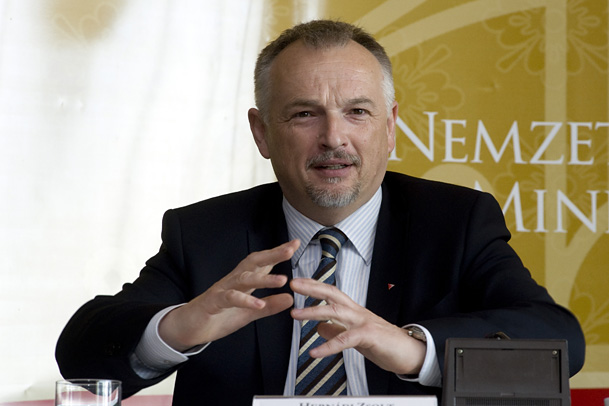The EU Anti-Fraud Office investigated irregularities reported by Direkt36

OLAF, the EU Anti-Fraud Office investigated the Jeremie venture capital programme in Hungary, the aim of which was to provide financial support to start-up companies with innovative ideas. OLAF investigators found several irregularities previously revealed by Direkt36 in cooperation with the Forbes magazine. This was reported by Hungarian online news site 24.hu which obtained the OLAF report.
According to the OLAF report, the tender procedure which selected the fund management companies of Zsolt Hernadi and Istvan Garancsi, two businessmen close to PM Orban, for the distribution of funds to start-ups was flawed. 24.hu also reported that the suspicion of cartel between the two companies was also raised.
We can only do this work if we have supporters.
Become a supporting member now!
OLAF objected that Gran Private Equity, owned by Zsolt Hernadi, head of the Hungarian oil company MOL and Garangold, owned by Istvan Garancsi, personal friend of PM Orban, were both set up a few days before the launch of the Jeremie tender and were registered at the court on the same day. The investigation showed similarities between the two companies. According to OLAF, this raised the suspicion of the violation of free competition.
Direkt36 wrote about the companies of the two businessmen last year and found several links between them.
OLAF also investigated that Gran invested in the company called Dating Central Europe which purchased several sex partner searching websites from the Jeremie funds.
Dating Central purchased one of the websites for 70 thousand euros, while OLAF valued it only for 988 euros.
Direkt36 also reported last year that the European Commission fined Hungary for the implementation of the Jeremie programme for several million euros in 2015 party because it considered the financial support to Dating Central Europe ethically problematic.
OLAF has not responded to our questions yet.
The European Union launched the Jeremie venture capital programme in Hungary in 2009. A subsidy totalling 130 billion forints (422 million euros) is allocated to 28 fund management companies operated by private investors who had been selected via a public tender. While 70% of the investment given to start-ups comes from the EU, the remaining 30% has to be provided by the private investor.
The fund managers must repay the subsidies within 10 years, but not to the EU, but to the Hungarian state, which can re-use the amount for similar purposes. If the fund management company exits the start-up with a profit, most of the gain goes to the private investor. In case of significant loss, however, it has to share at least part of that, too.

